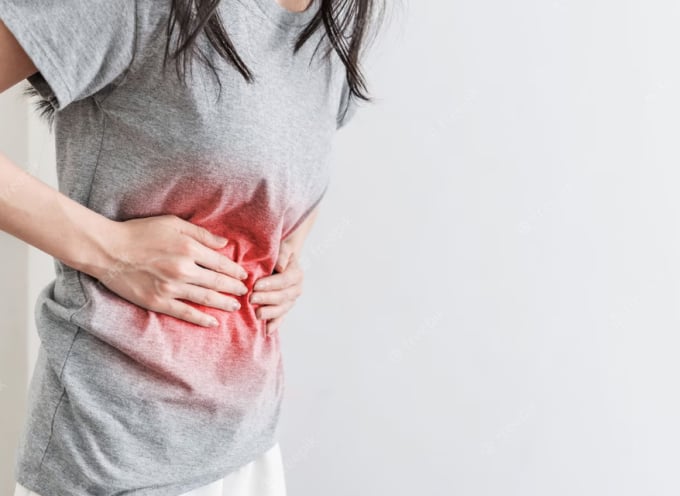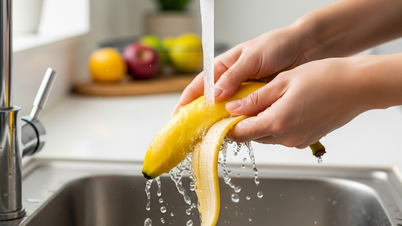Chronic kidney disease can interfere with ovulation, cause irregular periods, and affect a woman's fertility.
Studies show that women are five times more likely to develop chronic kidney disease than men. The disease in women leads to a series of special health problems as follows.
Irregular menstruation
If kidney function drops below 20% of normal, the higher levels of waste buildup in the body can interfere with ovulation. This affects menstruation and makes it difficult to conceive. Chronic kidney disease can cause excessive bleeding or irregular periods, or both. When a person begins dialysis, irregular periods get worse and may stop altogether. In addition, a person may experience menopause three to five years earlier than normal.
Reproductive problems
Chronic kidney disease interferes with ovulation, affecting a woman's chances of getting pregnant. This condition can also lead to a number of complications during pregnancy, including the risk of preeclampsia, fetal growth restriction, and premature birth. In addition, stress during pregnancy can lead to a significant decline in kidney function and worsen existing health conditions such as anemia, vitamin D deficiency, and high blood pressure.
Mental health
Chronic kidney disease also affects the patient's psychology. About 25% of women with chronic kidney disease are likely to suffer from depression.
In addition to the above consequences, the disease can also put women at risk of cardiovascular and bone diseases such as osteoporosis. Because when the kidneys are weakened, they cannot produce hormones such as vitamin D, which is important for bone strength. Chronic kidney disease also reduces libido and causes problems related to sexual health.

Chronic kidney disease seriously affects women's health. Photo: Freepik
There is no cure for chronic kidney disease. Therefore, it is necessary to treat the disorder, control symptoms, reduce complications and slow the progression of the disease through medication. In addition, choosing foods or daily diet plays an important role in controlling the disease.
Limit salt intake: Patients should completely avoid products with added salt such as potato chips, salty foods, canned foods, frozen foods, processed meats and cheeses, and other fast foods.
Low potassium foods: People with chronic kidney disease should avoid foods high in potassium, such as bananas, oranges, tomatoes, potatoes, and spinach. They should eat foods low in potassium, such as apples, berries (blueberries, raspberries, cranberries), strawberries, grapes, cabbage, green beans, carrots, and garlic. In addition, most salt substitutes contain potassium, so people with chronic kidney disease should also avoid them.
Protein restriction: It is not possible to avoid protein completely, but it is important to limit protein-rich foods such as beans, lean meats, milk, eggs, and cheese. Instead, eat low-protein foods such as fresh fruits, vegetables, cereals, and breads.
Limit phosphorus: Healthy kidneys are responsible for maintaining the right amount of phosphorus in the body, but excess can weaken bones. Therefore, patients should limit foods rich in phosphorus such as whole grain bread, whole grains, nuts, sunflower seeds, etc. While foods low in phosphorus such as corn or rice cereal, unsalted popcorn, lemon juice, etc. are recommended.
Limit fluid intake: Although water is essential for life and a healthy person should provide plenty of water to the body (about 2-2.5 liters of water per day), in case of chronic kidney disease, the body needs less fluid. This is because the diseased kidneys cannot remove excess fluid. Therefore, do not consume too much liquid or water-rich foods such as soups, ice cream, gelatin...
When a person has chronic kidney disease, the organ cannot function properly, leading to a buildup of waste and fluid in the body, causing problems with the heart, bones, etc. But when a person follows a kidney-friendly diet, limiting the intake of certain minerals and fluids, the buildup of waste and fluid can be avoided, and further damage to the kidneys can be reduced.
As You Wish ( According to Lalpathlabs, Mayo Clinic )
Source link


![[Photo] Da Nang: Hundreds of people join hands to clean up a vital tourist route after storm No. 13](https://vphoto.vietnam.vn/thumb/1200x675/vietnam/resource/IMAGE/2025/11/07/1762491638903_image-3-1353-jpg.webp)












































































































Comment (0)